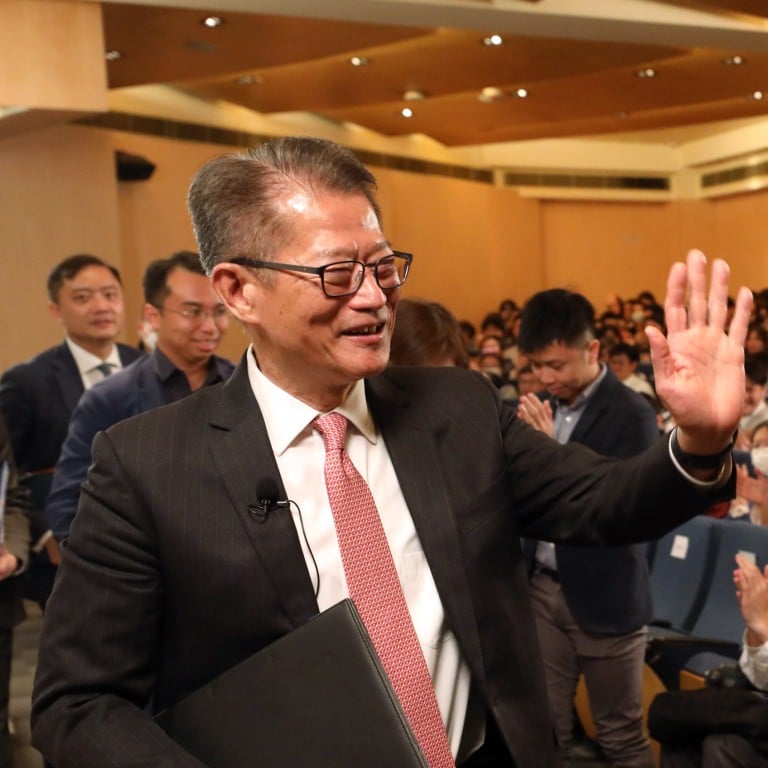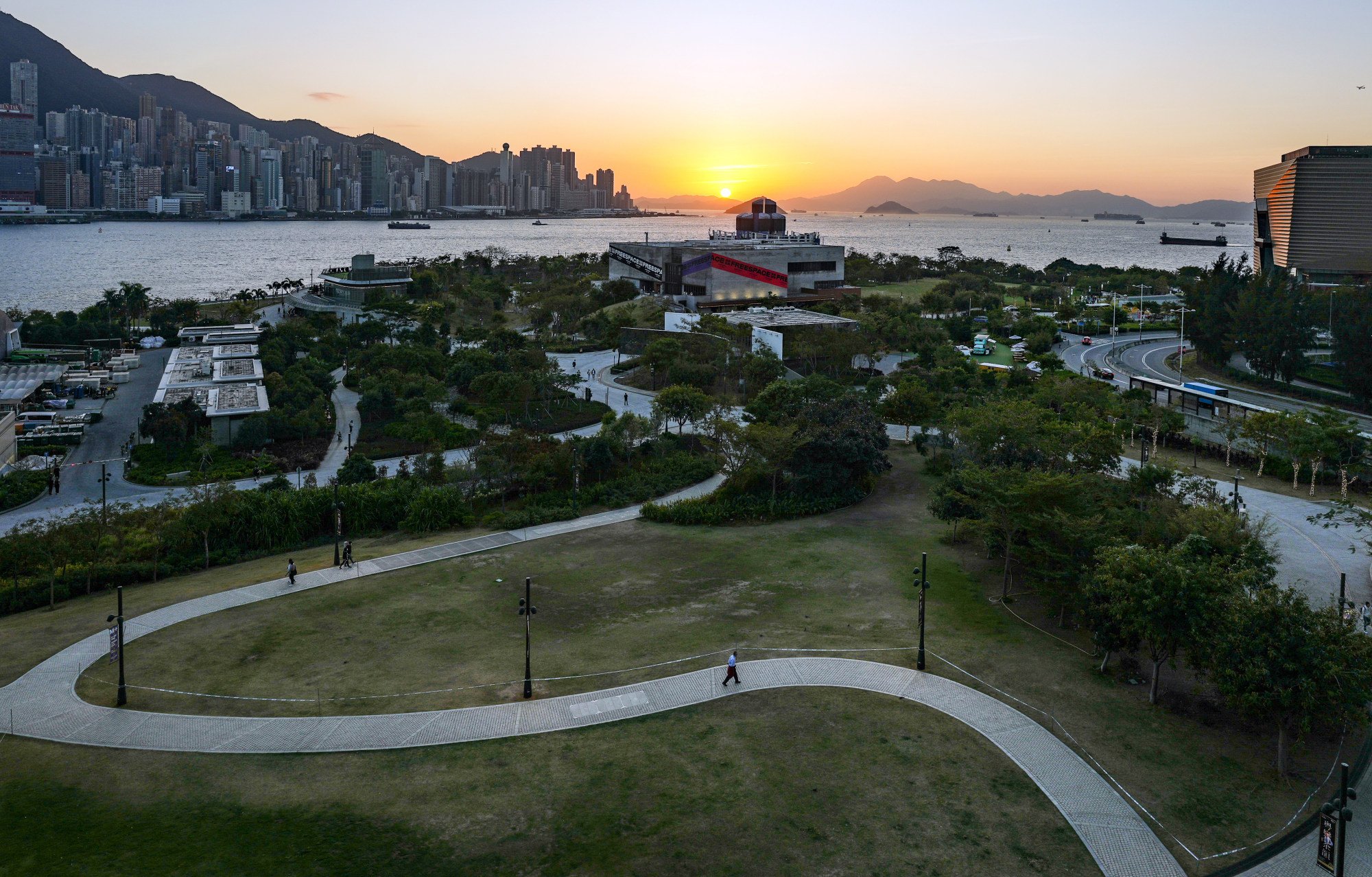
Hong Kong public institutions should use bank loans, own land rights to make ends meet, says finance chief
- Financial Secretary Paul Chan urges institutions such as West Kowloon Cultural District Authority to look into different options to make ends meet
- ‘Every organisation must do its best, whether by [revamping] their business models or using their land development rights, to ensure they can continue operating,’ he says
Hong Kong’s finance chief has called on public institutions such as the West Kowloon Cultural District Authority to use bank loans and their own land development rights to make ends meet.
Financial Secretary Paul Chan Mo-po on Wednesday urged the institutions to look into the different options after arts hub chairman Henry Tang Ying-yen earlier said it was waiting for government approval for its proposal to put part of the district’s land on sale to ease its funding crisis.
“Institutions such as the West Kowloon Cultural District Authority, Ocean Park and the Urban Renewal Authority must think about how to achieve a balance between revenue and expenditure as much as possible in their operating models,” Chan said at a youth forum.
The arts hub has said it will be forced to halt commitments for future events from June if it does not resolve its funding crisis by then.

The finance minister was replying to a question from a fresh university graduate on government help for cash-strapped public bodies, adding that if such organisations could make good use of funds from private lenders, they would no longer need regular capital injections from the government.
“When banks approve loans, they help review whether the business plan or project is commercially feasible and whether there is a return,” he said.
Making good use of their land development rights was another option, he said.
“Every organisation must do its best, whether by [revamping] their business models or using their land development rights, to ensure they can continue operating,” he added.
But the suggestions did not mean the government would not provide any support, Chan said.
Hong Kong treasury chief champions HK$600 billion bond issuance plan
“Of course, some projects are not easy. For example, people working in the cultural sector may struggle. We will support them when appropriate,” he said.
The arts hub, for which the cash resources will dry up by June next year, is waiting for a government decision on a proposed funding plan submitted last March that involves selling part of the district’s 40 hectares (99 acres).
The district received a one-off government endowment of HK$21.6 billion (US$3 billion) in 2008 to build world-class venues to put Hong Kong on the global arts map.
The forum organised by the Hong Kong Federation of Youth Groups was attended by more than 260 students from secondary schools and universities, as well as fresh graduates.
The host of the forum asked Chan about remarks made by former finance chief John Tsang Chun-wah that the government had “undeniably fallen into an era of structural deficits” and issuing bonds to address the issue could affect the city’s credit ratings.
But Chan, who announced plans to issue HK$120 billion in bonds to cover the government’s expenses in his latest budget, said Hong Kong’s current debt ratio only accounted for about 6 per cent of the gross domestic product (GDP) and was “very low” compared with other advanced economies.
He also expected the debt-to-GDP ratio to rise to 13 per cent five years later but that the government’s operating and comprehensive accounts would return to a profit after two and three years, respectively.
Chan also pledged that the government would not stop reclaiming land despite his recent budget saying he would delay the controversial Lantau Tomorrow plan by two to three years.
The 1,000-hectare (2,500-acre) project, which aims to address a land shortfall and is expected to house a third central business district, has an estimated construction cost of HK$580 billion, with financial returns forecast at HK$750 billion.
Hong Kong’s West Kowloon arts hub funding crisis ‘threatens to halt event deals’
Chan said the plan would take a back seat given the “public finance position” and that authorities would instead focus on the Northern Metropolis scheme, a development project near the city’s border with mainland China aiming to provide housing for 2.5 million people.
“We don’t want to see a property price hike again like that from 2007 to 2016, when the residential flat prices rose twofold,” he said. “A building initially worth HK$1 million later cost HK$3 million.
“We must persist in reclaiming land because it takes a long time. We can have the land and not sell it, but we must have the reserves on hand.”
Other students expressed concerns over how authorities could attract more tourists to Hong Kong after the Covid-19 pandemic and the deepening integration with the rest of the Greater Bay Area, Beijing’s plan to link Hong Kong, Macau and nine neighbouring cities into an economic powerhouse.
The financial secretary said authorities would focus on developing innovation and technology, where Hong Kong could show its advantage in finance, research, intellectual property laws and international standing.
He added that he envisaged the area’s entire development becoming a financial innovation and technology centre on a par with the “San Francisco [Bay Area] and New York combined”.
